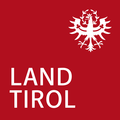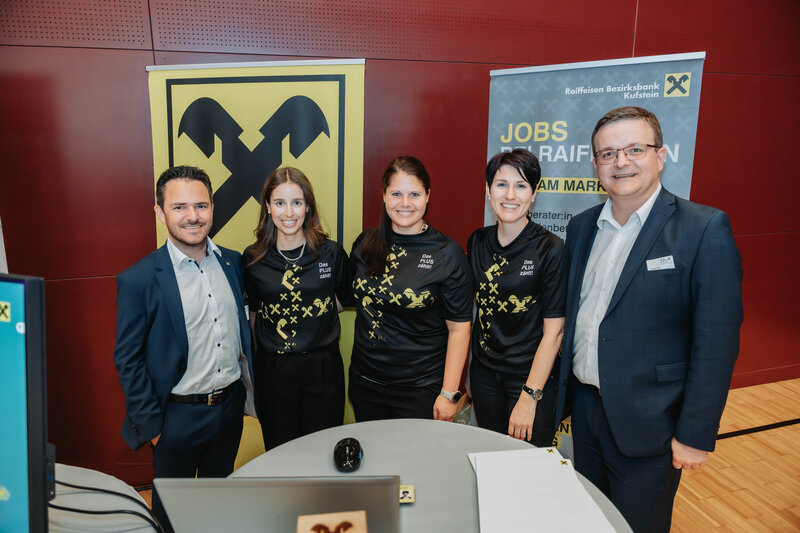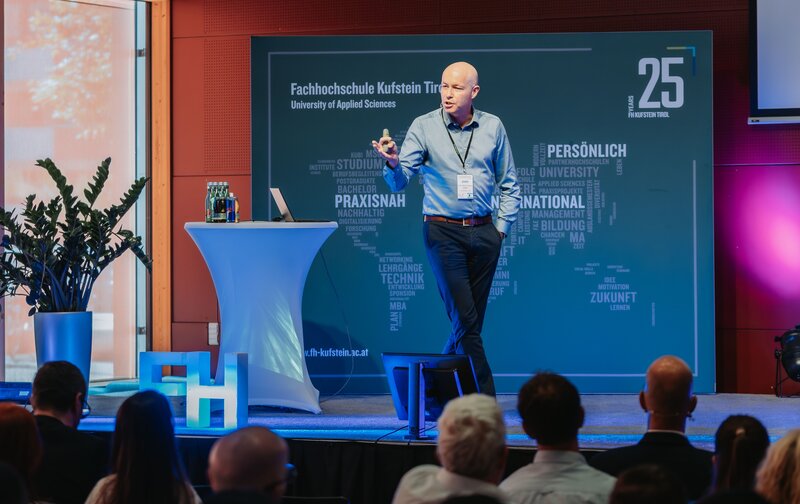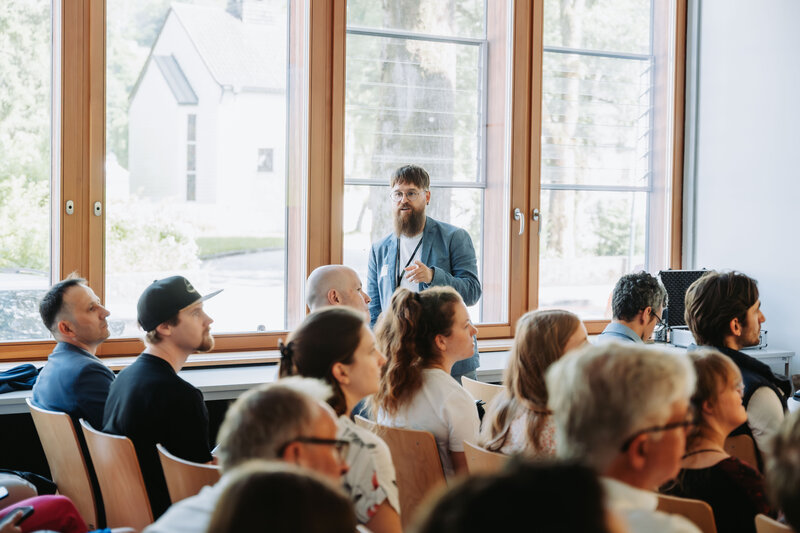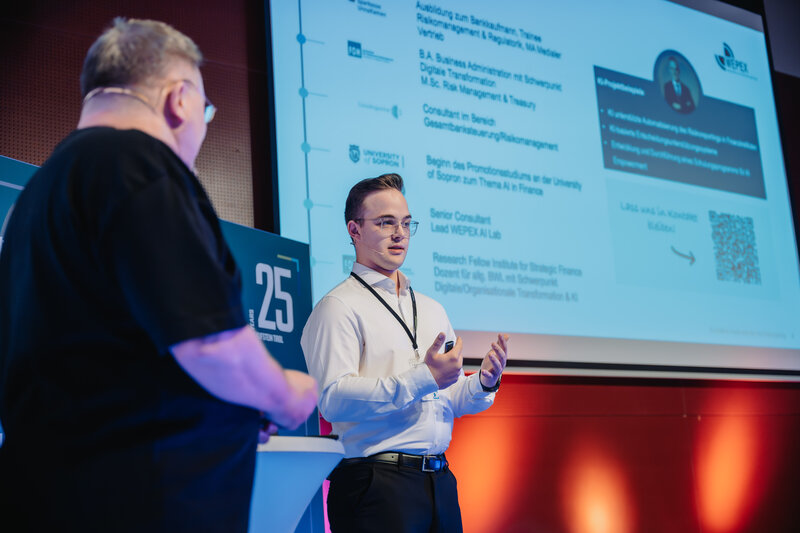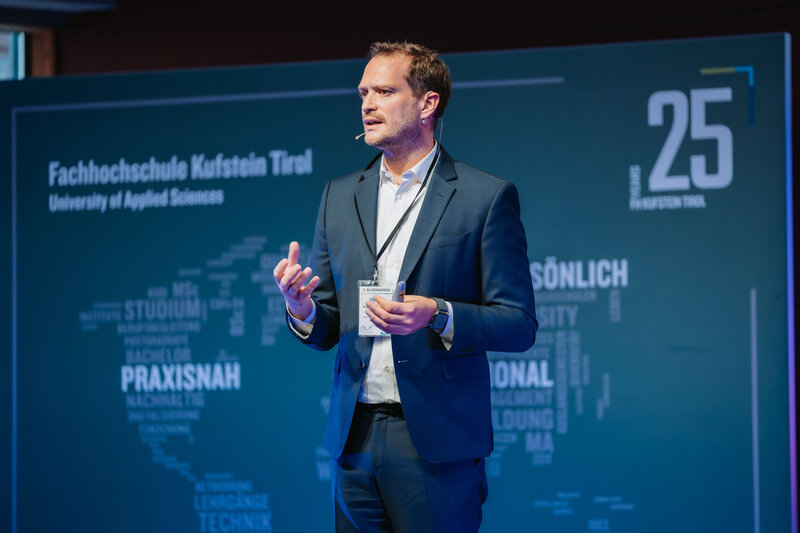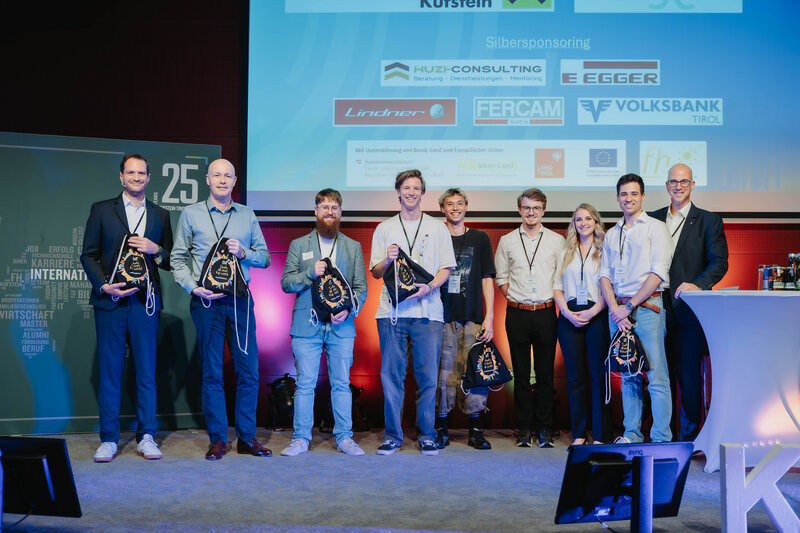Focus on AI: FH Kufstein Tirol brings theory and practice together
- 30.06.2025
- Event Review
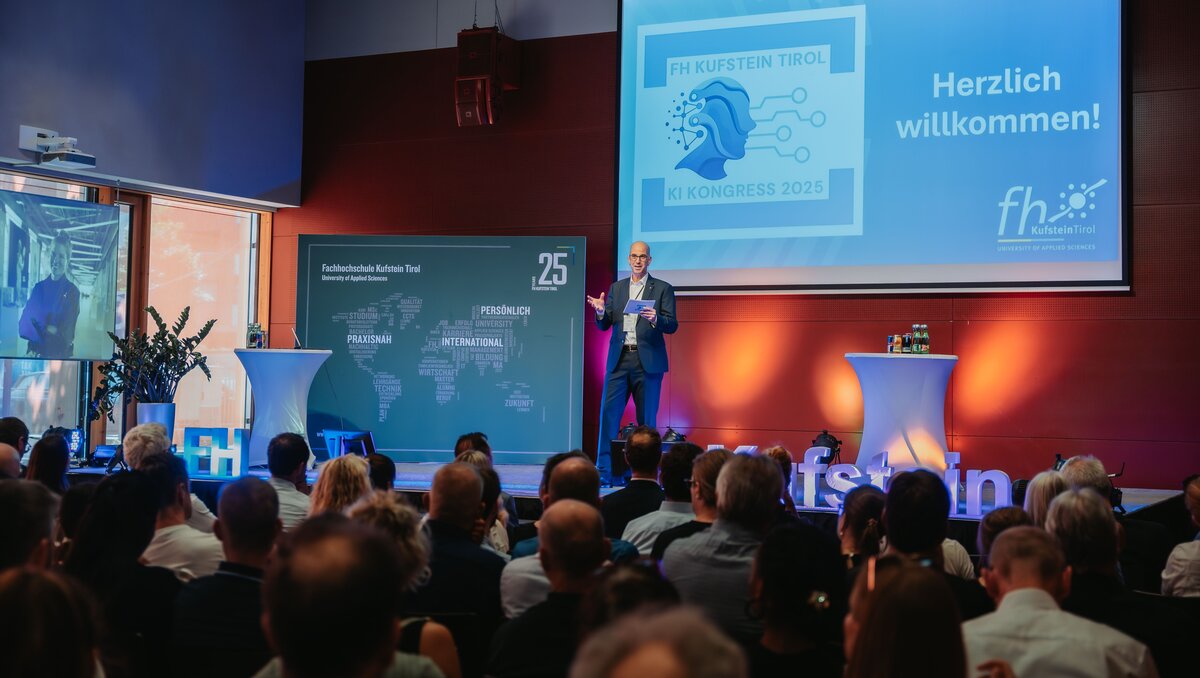
Prof. (FH) Dr. Peter Dietrich opens the first AI Congress at the University of Applied Sciences Kufstein Tirol.
Artificial intelligence is changing the world – but how can it be used effectively? The first AI Congress at the University of Applied Sciences Kufstein Tirol brought together researchers, practitioners, and visionaries. Exciting insights, critical questions – and a glimpse into the future that will give you goose bumps.
On June 13, 2025, the Kufstein University of Applied Sciences brought together theory and practice in the field of artificial intelligence (AI) with a diverse conference program. The event was organized by students in their second semester of the full-time bachelor's degree program in International Business Studies. Over 200 participants attended the premiere of the event, which focused on current developments, concrete applications, and social perspectives.
After a welcome address by Prof. (FH) Dr. Peter Dietrich, Prof. (FH) Dr. Roman Stöger opened the program with his keynote speech Using AI for Business. In his presentation, he highlighted the strategic impact of AI on business models and used current data to show how profoundly AI is already changing economic processes. He addressed both opportunities and challenges as well as ethical issues.
Eva Marschall from Puma SE then gave a presentation entitled A little smarter every day – AI in everyday working life, providing practical insights into the company-wide introduction of AI applications. She showed how internal certifications, targeted training, and cross-departmental collaboration are driving digitalization at Puma.
POSTER EXHIBITION AND INTERACTIVE AI STATIONS
During the first break, a poster exhibition was opened, where students from the Kufstein University of Applied Sciences presented their own concepts for industry-specific AI solutions – including intelligent forecasting models for tourism, AI-supported energy consumption analyses, and chatbots for customer dialogue. The posters highlighted specific challenges and innovation potential within individual industries. The exhibition was complemented by interactive stations where visitors could experience AI-generated music, images, and text productions.
WORKSHOPS: IN-DEPTH DISCUSSION
Three parallel workshops took place in the afternoon. Anatol Maier (Neuraforge) demonstrated current methods for detecting deepfakes and explained the challenges of dealing with manipulated media content.
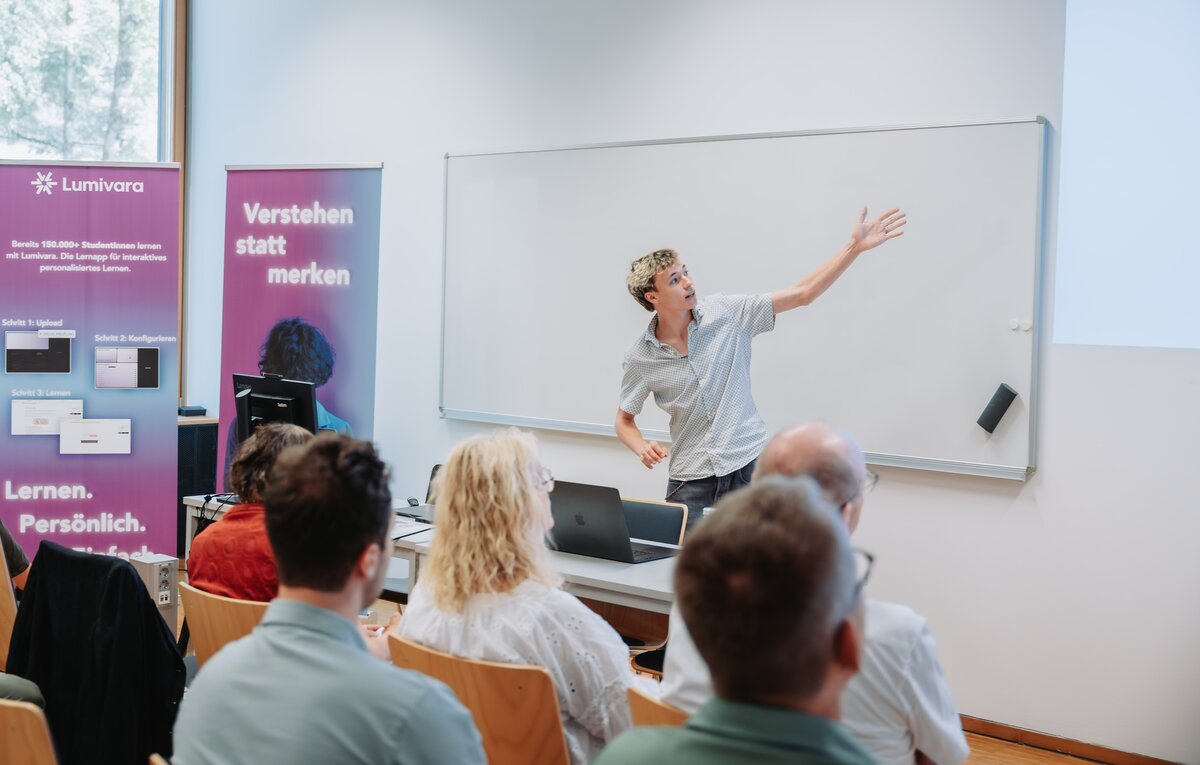
Numerous presentations on the topic of AI inspired the audience at the 1st AI Congress at the University of Applied Sciences Kufstein Tirol.
Marco Pedrotti and Thomas Thaler (Lumivara) presented applications that demonstrate how AI can support the learning process in schools on an individual basis, for example through adaptive learning platforms. Prof. (FH) Dipl.-Ing. Thomas Schmiedinger invited participants to a discussion in the third workshop entitled What makes us human? The discussion focused on the limits of artificial systems and the question of which skills will continue to distinguish humans in the future.
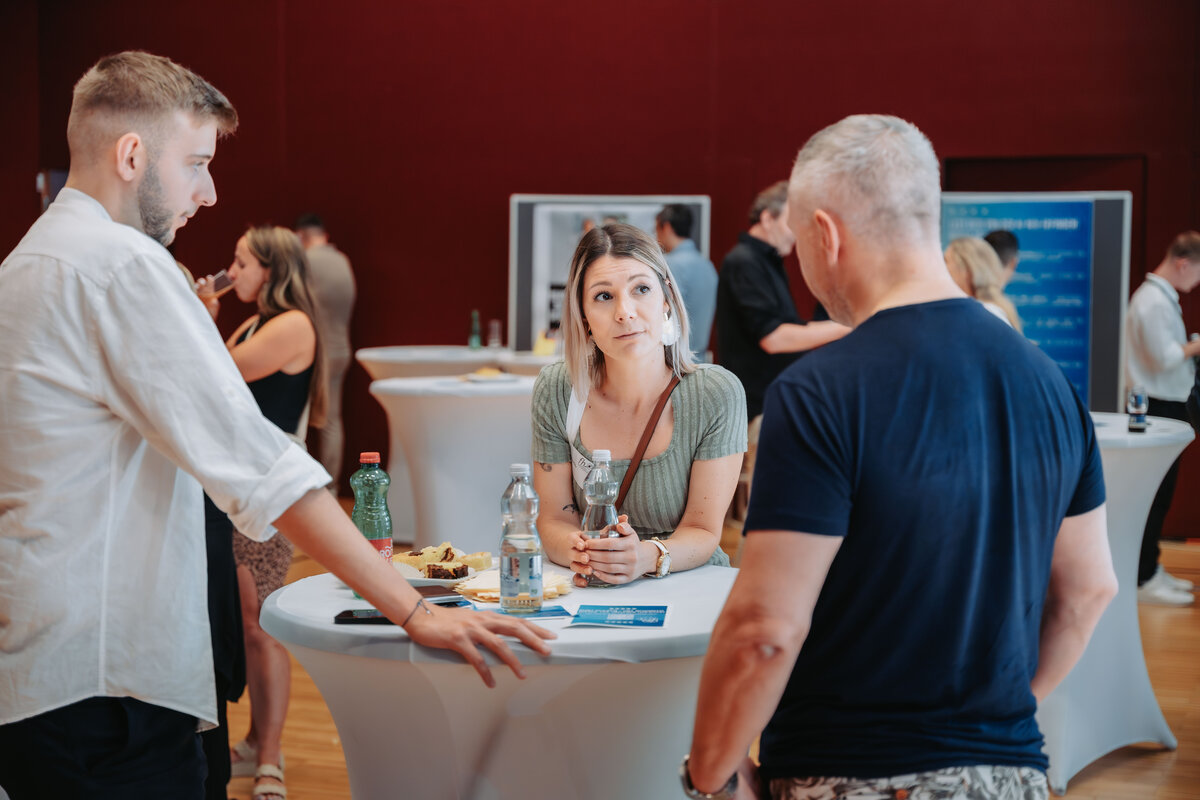
The AI Congress provided an opportunity for professional exchange on the topic of artificial intelligence.
The event concluded with two specialist presentations with an international perspective. In their presentation entitled From Data Science to Decision Science, Andreas Strunz (adesso SE) and Alexander Röser (WEPEX GmbH) demonstrated how they are using AI in specific ways in analysis processes in the banking sector, thereby revolutionizing risk reporting. Prof. Dr. Maximilian Wolf (Albstadt-Sigmaringen University of Applied Sciences) reported on his research trip to the US, where he spoke with representatives from OpenAI, Google, and Meta about current developments and strategic trends. The focus was primarily on so-called AI agents and the need for comprehensive preparation of individuals and organizations for the profound change brought about by AI – keyword: AI literacy. His conclusion: “Whatever you can imagine today, AI will make it possible. And faster than we think!”
ORGANIZERS DRAW POSITIVE CONCLUSIONS
“We are delighted with the tremendous response to the topic of artificial intelligence and that so many interested visitors found their way to our first AI Congress,” said Prof. (FH) Dr. Peter Dietrich. “This clearly shows how great the need for discussion and information is at present. We want to continue to actively provide a forum for this in the future – and to actively promote engagement with the topic of AI.”
Links:









